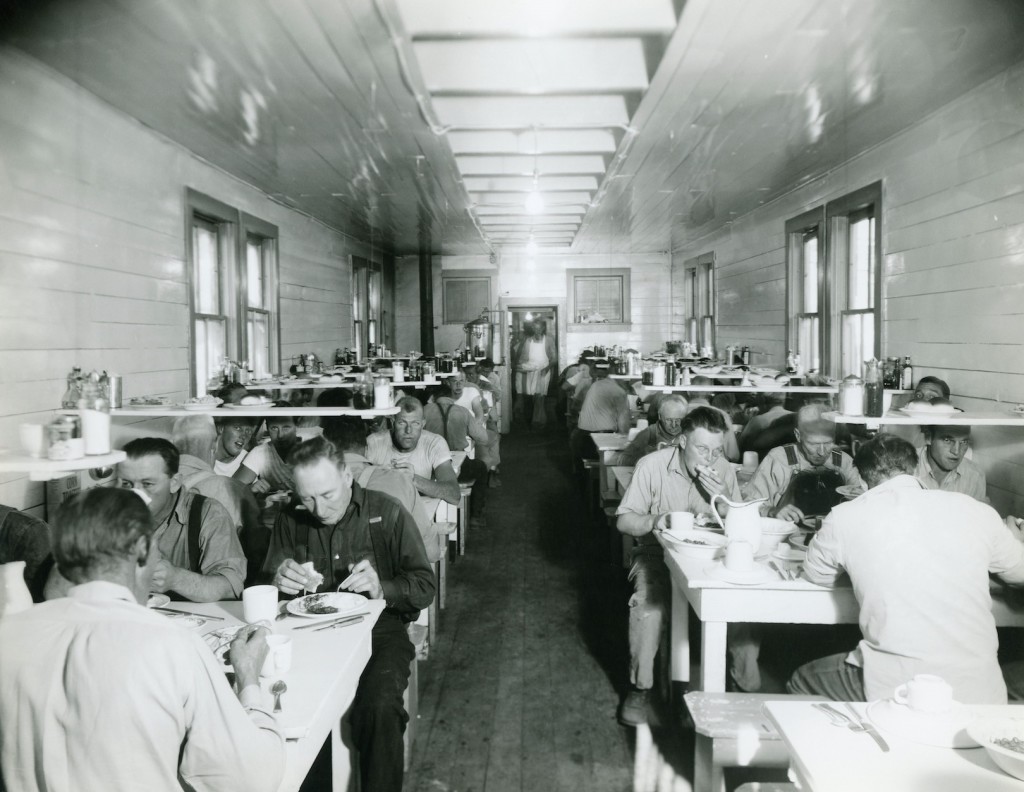
The cookhouse operations at logging camps were an expensive undertaking resulting in substantial losses for the lumber company. However, the food served in the logging camps played a pivotal role. Poorly fed loggers would move to a different logging company, and thereby impact the former company’s production.
In 1948, Fruit Growers Supply Company experimented at its Camp Harvey location (some twenty miles east of Poison Lake) by raising the price of a meal to one dollar. Complaints were loud and long. But now, instead of losing thirty-six cents per meal, they now lost only eight cents. The result was substantial and at the end of the year, Fruit Growers’ operating losses for the cookhouses at Camps Harvey and the newly opened Camp Stanford was $63,500.

On May 2, 1949, Camps Harvey and Stanford opened for another season. In an effort to further reduce the cookhouse expenses, Fruit Growers leased them along with the commissaries, to H.S. Anderson Company for one dollar. Fruit Growers thought perhaps an outside company could handle the meals more efficiently. They would never find out the answer.
Just three weeks into the logging season all operations on the Harvey line shut down. The cookhouse crews, represented by Local 768 of the Bartenders and Culinary Workers Union, walked off the job in a wage and hour dispute with H.S. Anderson Company. As the weeks passed with no end of the strike in sight, Fruit Growers closed down Camp Harvey and Stanford permanently, as well as its Harvey railroad logging line.